interview by Michael McCarthy
When I decided to interview some people who weren’t musicians for Love is Pop, novelist Jay Asher was high up on my wish list. If an author can be a pop culture icon – and I certainly believe that they can – then Jay Asher is one of the biggest icons of the last decade. His debut novel, Thirteen Reasons Why, has been on and off the best-seller list – mostly on – since it was released nine years ago. More importantly, it’s helped millions of people worldwide during some of their darkest hours, dealing with bullying and suicide. Jay has a wonderful new young adult book – one that can be enjoyed by people of all ages – coming out on October 18th called What Light, which also carries a message of hope, this time in addition to forgiveness. It’s a love story about a girl named Sierra whose family comes to California for one month a year to sell Christmas trees on a lot that they own. While there, Sierra meets Caleb, a local guy who’s more or less been exiled from the community because of a rumor that he did something terrible years ago. Neither character is looking for a relationship when it begins, but they become unlikely friends and that develops into something more. It’s right up their with the best of John Green and Nicholas Sparks. If romance isn’t your thing, you might not appreciate it, but I think most of you will; admit it – you have a soft side. Now let’s hear from the icon himself already…
MM: To start with the new book, What Light is the story of Sierra and Caleb, who meet when Sierra’s family is in California selling Christmas trees, and the book is written in first person from Sierra’s point of view. What made you want to write from the female point of view?
JA: That’s just the way the story came to me. That’s kind of how it’s been with my books, like with Thirteen Reasons Why, it was also from a female perspective first and later on there was a male perspective that was added. That’s the way the story came to me so that’s what I went with.
MM: So, then when you wrote Thirteen Reasons did you start with the tapes and then add the other [male character/point of view] later?
JA: Yeah, that’s how I ended up doing it. But when I first started writing I tried doing it just how it looks in the book, with her talking and then his thoughts as he’s listening to what she recorded, going back and forth, sometimes pretty fast. It basically became hard for me to keep their voices straight. At some point not too far into the book, just like 20 pages or something, I decided to start over and just tell her story from beginning to end and go back and add in his thoughts.
MM: Cool. I did not know that. Did you ever consider writing What Light from Caleb’s point of view, making him the one who sold trees and Sierra the one with the disturbing secret?
JA: Actually, no. At some point I did consider writing the same story but from Caleb’s perspective. You would then know more about his story and his day to day life. But the thing that intrigued me when I first got the idea was the idea of somebody who moves to a town for just one month a year. I decided that to keep the tone of the story the way that I wanted it, it needed to be from her perspective.
MM: What Light is kind of the opposite of Thirteen Reasons where it carries messages of hope and forgiveness, whereas Hannah [in Thirteen Reasons] couldn’t forgive and lost hope. How important was it for you to write a book that was so different?
JA: It actually wasn’t important. I’d actually had this idea before I came up with the idea for Thirteen Reasons Why. It was a story that eventually at some point I wanted to get to. And then Thirteen Reasons Why became this really big book and that was the book I was known for and I was speaking about a lot. As I was working on What Light, there was a part of me that was a little nervous that the very different shift in tone would be, not necessarily jarring, just not what was expected. It’s easier to put out a book that is similar in tone. So, I was a little nervous about that, but as I started getting more and more into the book, and I started finding that forgiveness and hope connection between the books, I wasn’t trying to put it in there but it definitely became a part of the story. Like you said, I realized in a way I’m kind of saying very similar things, just from the opposite perspective. I consider Thirteen Reasons Why a cautionary tale. This is more of an inspiring one.
MM: What Light is kind of like the young adult equivalent of chick lit, so I was wondering if you were afraid that half the audience that made Thirteen Reasons Why so successful would not be interested in the book?
JA: I know some don’t like the term chick lit, obviously if it’s to diminish an audience or books. Other people, authors and readers, embrace it. I saw you post that you like chick lit, so I know you see it as any other category. But take the cover of my book, and the idea that you don’t judge a book by its cover. Different book covers attract a different audience. And there’s been a lot of talk in the publishing community the past several years about that, whether books are written for boys or for girls and whether they should be marketed to one or the other or whether they should be marketed to both. So, I was really curious to see what my publisher was going to do with this book. And I was very appreciative that they went with a cover that very much represents the story. I think they would have done a very similar cover whether it was written by a male author or a female author. It says that if you want a love story, this is going to be a book you’ll like. I don’t think they shied away from that and I was happy about that. So, it’s weird because there’s the perception that the people that like love stories are mostly female, but the more I talk to people about what my book’s about, the more I hear men saying, or male students at schools saying “I actually like those books.” When they say actually they’re acknowledging that people don’t expect them to like those books but they do. So I think there’s something cool about having a guy write a book like that. Yeah, it’s cool to read it, cool to write it, if it’s a good story it’s a good story.
MM: Do you have any favorite chick lit books?
JA: I’ve always read all types of books. I’ve read adult romance stories, or what some call women’s fiction. Again, that’s another term some people don’t like. And I’ve gone to a few conferences for Romance Writers of America, and they embrace it. It’s knowing your market but at the same time it’s kind of sad because there are lots of men that read that. When I was working on What Light – years ago when I came up with the idea – I read a lot of romance novels set at Christmas time and, just like any genre, there’s varying qualities out there, you know? One of the biggest names in that is Debbie Macomber and I’ve read a few of hers and I’ve always liked them.
MM: One of the things that amazed me about What Light is the way that the relationship developed gradually. I think I would’ve had a hard time pacing the book if I was writing something like that.
JA: Yeah. That’s just the way it flowed out. I think it naturally happened with that book especially because both of them are kind of reluctant to have a relationship. She’s only in this town for a month. At first, it’s “I don’t want a relationship.” Then when she starts to admit to herself that she’s falling for this guy that obviously kind of elongated the falling in love process. But I like that. I don’t like things that are rushed. I did have a lot of people saying in a typical romance novel you need to have the love interest show up by this page and you need to know that’s the love interest right away. And I just felt I wanted to know this girl by herself a little more. Because I wanted her to be this strong individual. She’s not there to meet a person. She just happens to.
MM: Your second book was a co-write with Carolyn Mackler called The Future of Us where your characters saw their futures on Facebook. Did you have to get permission from Facebook to use the name?
JA: No. I mean, we obviously thought about whether we needed permission or not. There are all these legal and creative issues around that and it’s still not very clear because you can talk about things that are a part of pop culture. So, we decided, you know, we’re not going to get clearance because we knew we weren’t saying anything bad about Facebook. That it’s these people in 1996 and what would Facebook look like to them. When we first came up with the idea we thought a way around any concerns is to make up a social network site but everything we wanted to address, everybody would read it – every time they saw the name of whatever we gave the site – they’d think, oh, like Facebook. Rather than having people constantly say in their mind “like Facebook” we’re just going to use Facebook. And kind of to be silly and kind of to be gracious we put Mark Zuckerberg’s name in the acknowledgments.
MM: What made you want to be a young adult author? I think the reason that I write it is because I live in a state of suspended adolescence, but I imagine you must have better reasons.
JA: [Laughs] That’s very funny. I think most people feel they’re younger than they are. “I live this way and I know I have these responsibilities but, man, I still feel like I’m this age,” you know? It’s different for everybody but it’s usually a couple decades in the past. Well, when I first got into writing and I first decided that I wanted to be an author I was trying to write younger children’s books. I was going to school to be an elementary school teacher and I took a class on children’s literature and it reintroduced me to children’s books and I just started writing in that class because I was a huge reader when I was a kid. Those stories were such a part of my life. I had always liked writing and ideas started coming to me that were definitely children’s books. I had never read – when I was a teen – what you would call a young adult book. There were some out there but there weren’t that many. I had never really read one until I started going to children’s writing conferences and I started meeting YA authors and I started reading some of their books. And I loved them. But I never thought I’d write it. And then one day the idea of Thirteen Reasons Why just came to me. If the story comes to you and you’re excited by it, go for it.
MM: Do you think you might write a non-YA book at some point? Do you have any ideas for something like that?
JA: Yeah, I have an idea right now that I’m working on that if I write it as a novel it would be an adult novel and historical fiction. I guess you could say The Future of Us is historical fiction if you want to call 1996 history. But I’m actually doing research on it and I’ve taken a couple of research trips for that book to take notes. And it’s a story I’m excited about so, you know, writing a YA romance or writing a YA book set in ’96 or writing Thirteen Reasons Why, whatever the exciting story is and for whatever age. You spend a long time writing a book so you might as well be passionate about it.
MM: Thirteen Reasons has been a best-seller for years now. Do you know how many weeks it’s been on the best-seller list?
JA: Well, if you total all the weeks up together – because it goes on and off the list – it’s been over four years total. And the book’s been out for nine years next month. It’s amazing. [Laughs] It’s longer than I thought. Honestly, when I sold the book I thought some people would really, really love it but I didn’t think it was going to have a big audience. So, it was kind of an eye-opening thing to me, how many people can connect with those issues, you know?
MM: Do you hold a world record for most popular YA book ever?
JA: I guess if you were to compare sales I know it’s not Thirteen Reasons Why, whether it’s Twilight or The Fault in Our Stars, there are definitely many others that sold more. But, like I said, I didn’t expect that. I totally cried the very first time it hit the best-seller list because it was so unexpected. And I said, even if it’s on there for one week I can say I’m a New York Times best-seller and that was good enough for me. So, it’s been amazing.
MM: There’s going to be a Netflix series based on the book. Are they already filming that?
JA: Yeah, yeah. They started filming a couple months ago and it will film for another couple months because it’s 13 episodes and they’re filming it continuously. I’ve been up to the set twice and I’m going up a couple more times. It’s very exciting. I mean, the fact that they’re filming it, that’s very exciting itself. Everybody involved – every single person I’ve met involved – actors, producers, directors – as people, I love them. It’s exciting to know that I like how they’re filming it and I also like the people filming it.
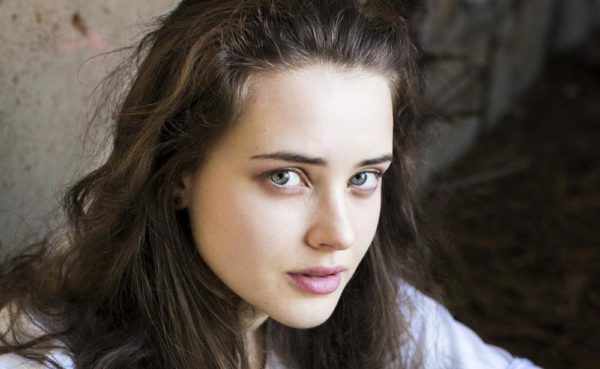
MM: Can you tell us who some of the directors and actors are?
JA: They’re having several directors because it’s going to be thirteen episodes. The first two episodes were Tom McCarthy and he directed Spotlight, which won best picture last year. Which kind of shows the quality, how serious they’re taking filming this. I was there for a couple days of his shoot and, yeah, it’s incredible what he’s doing. He’s really helping set the tone for the directors that come. The big name that people were excited about when we announced it, Kate Walsh is playing Hannah’s mom. She’s been on a lot of TV shows. Dylan Minnette – he plays Clay – he’s in the number one movie right now, Don’t Breathe, he’s so great. The person who is playing Hannah, her name’s Katherine Langford. She’s from Australia. They auditioned hundreds of people. It’s obviously a very important role to get right and they started looking internationally when they weren’t finding exactly what they wanted and she’s brilliant. When I met her in costume, there was this moment of, wow, that’s my character.
MM: Are they showing flashbacks of the things Hannah is talking about as the tapes are being played? Is that how they’re doing that?
JA: Yeah, you have what’s going on now and you have the flashbacks. And you’ll also get stuff that’s not in the book. You’ll learn the backstory of some of the characters that in my novel Clay will sometimes talk about – what he knows about those characters – but most of the book is Hannah talking about her experience with that person, but the show will get more into who they are as people. It feels kind of like an expanded version of Thirteen Reasons Why. The fans will like that and that the tone is being maintained. The characters are maintained. And when I first met the actors, Netflix had a kick off dinner a couple days before shooting started and my wife and I went up there. It was funny because the cast all introduced themselves to me with their name and then they’d also say, “and I’m” then they’d give me the character name. It was like, I’m shaking hands with this character now, this person that I wrote a decade ago.
MM: That extra backstory that we’ll get – is that information you supplied them with?
JA: No. No, it’s not. I went down a couple times to meet with the writers – there are several writers working on it – and the main guy has won a Pulitzer Prize for a play that he wrote, Brian Yorkey, he’s amazing, and I met him a couple times before I met the other writers. We just talked about the book and how he saw the book. He’s somebody who was a fan of the book before he got the job. He was in a YA book club with his niece and they read the book and he loved it. And so when he found out they were going to be filming it, he tried really hard to get it. It’s one of those things where he’s an artist in his own right. He does a different type of thing than a novelist does and I completely trusted his take on the book. It’s great because the producers would come up to me privately and some of them said, “Just so you know, every time Brian gets stuck on something, or when all the writers are trying to figure something out, he’ll ask, what would Jay write?” They were like, “It’s a very sweet thing. He’s always referencing you.” The fact that they weren’t saying that in front of him – they were just coming up to me because they thought that I’d find it really charming. I’m excited and I think it’s going to be exciting for readers.
MM: Originally, I know Thirteen Reasons was supposed to be a movie with Selena Gomez starring in it. Why did that never happen?
JA: Yeah, we sold the rights actually three times. The first time we sold it was for a movie and we actually had a script written for it and Selena was going to be starring in it and it just never took off. Then we sold the rights again and it never took off again. Nothing had been written that time. But now it’s a combination of what’s going on in her career, and the way it’s being filmed, and she did get involved with this story several years ago now. So, she’s still an executive producer and very much involved. She really is the one that got the ball rolling. Because she contacted me personally – it wasn’t something where I sold the rights and we went out and found her – she found the book and then wanted to make it, contacted me and we met and I just completely trusted in her vision, which was also my vision, and I think that’s one of the main reasons it has kept our vision all these years later. So, then you bring on other producers and everything, starting from the same place.
MM: I read that Thirteen Reasons has been translated into 31 languages –
JA: – 35 now.
MM: 35. Wow. What are some of the more obscure languages it’s been translated into, or some surprising ones?
JA: I actually just did a tour in Estonia. The publisher asked if I wanted to speak at a couple of places there. And I had to look up and find that on the map before I went out there. It’s funny to find where it’s really taken off. It was a huge best-seller in Germany. In South Korea, it was a really big deal down there. It’s fun to hear from readers in those countries. I guess that’s the most eye-opening part for me. Sometimes their cultures might be very different and yet they can all relate to the basic need of respect. Your situation might be different and your culture might be different but everybody wants respect and can identify with that.
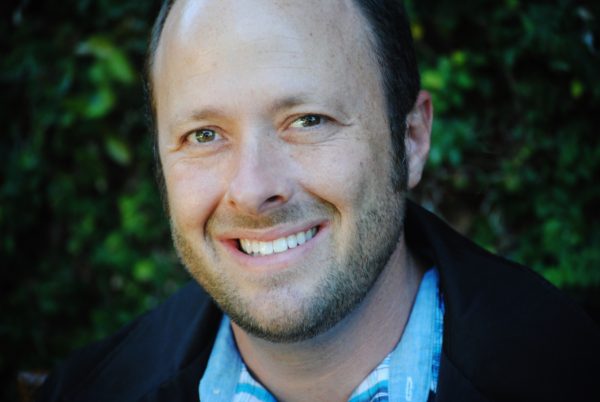
MM: When you go speak at schools, is it about suicide awareness or is it more of a Q&A? How does that work?
JA: I’m usually brought in because of the subject matter of the book. Just the past several years schools have really started addressing the issue of bullying. It’s something they realize they have a role in helping with. Because of that, if you’re a school that already brings in authors, they want to bring in an author who can also talk about this issue. They usually do approach me saying they’d love for me to talk a little about the issue. So I’ll address suicide prevention and bullying, that’s always a part of it. But then I talk a lot about just being an author as well. The editing process and rejections and all of that. I have done suicide prevention workshops and things like that as well. Like I said, I was trying to write funny books for young kids, so it’s weird to think that now I talk about such serious things. It’s always a really intense experience but always very beautiful.
MM: Do you get a lot of messages and letters and so forth from people who are depressed?
JA: Almost every time I get contacted it’s somebody explaining how the book’s helped them. 99% of the time if it’s someone who contacts me because they’ve been dealing with a lot, or have been suicidal, depressed, you know, a lot of times they’re basically saying the book helped them feel understood. Or the book made them realize they need to talk to somebody. So, that’s usually what it is. It’s not usually where they don’t know where to turn. But I do get those, too, which is always a very intense thing. Then you have to think, what are they really after? How can I help them?
MM: Obviously, Hannah left behind cassette tapes and, oddly enough, cassette tapes are starting to follow vinyl and make a comeback. Were you surprised by this?
JA: Yeah. I don’t get it. I think with teens – I think things started there – it’s unique and, you know, old things are fun. Everybody loves the warmth and sound of vinyl, but the quality can’t be the same, you know? So, I think it’s just that vinyl can be a really fun listening experience, whereas with cassettes, it’s fun to have things, tangible things, which you don’t have with digital, and you also don’t have to be as careful with them as you do with CDs, so maybe that’s it. I think it’s more just the fun aspect.
MM: You know what cracks me up is everybody and their brother is getting rid of their CDs –
JA: – I still have all mine.
MM: I have all mine, too. I have like 3000 of them. The thing is, I bet you 10 years from now CDs will make a comeback because then that’ll make people feel nostalgic or it’ll be interesting to the people who will be the youth at that point.
JA: Yup. Yup. What about eight tracks? That’s what needs to come back. My parents had eight tracks, so those were fun, but, no, those will never come back.
MM: The worst thing about those – my parents had them, too – and I hated how it would stop in the middle of a song when it had to change tracks.
JA: Sometimes that would happen with cassettes where it would flip over to the other side on its own.
MM: I was wondering what you thought about streaming services like Spotify because they only pay the artist like a fraction of a penny per song. Is there ever a fear that they’ll do that with audiobooks or something.
JA: That frustration happens now, but mostly with piracy. On Youtube you can find people who’ve uploaded the audiobooks. It’s a problem with audio books and it’s also a problem with e-books. It’s one of those things. The more technology’s out there it helps to reach an audience but there are absolutely concerns that have to be addressed as well, like pricing. Things like Spotify, it’s a great way to break in, right? It makes it really easy, and much cheaper, to get your music out there. And the same thing with e-books. They make it so much easier, especially for indie publishers, to get your stuff out there. But it’s harder to make a living at those things. For both the author and the musician. How many musicians actually take off where they can actually put all of their focus into music? You’re always going to have the break out musicians and the break out authors who can do it for a living, which is usually why you have the big names like Taylor Swift coming out against it because they have the ability to stand up to the system. On the surface it looks greedy – like “Why do you need those extra couple cents?” – but it also helps the bands that aren’t making money to make more money.
MM: The thing about Spotify in particular that bothers me is that they have not come out and said how much they pay per stream. They have this mysterious formula way of calculating it and it’s just weird because I’ve interviewed ’80’s metal guys –
JA: – I love those interviews.
MM: And I’ve interviewed younger artists and I interviewed one younger artist and her and the guy that she’s part of a duo with are living off of Spotify royalties and then I interview guys from heavy metal bands who swear that they must be getting all these streams and they’ll get a check for two dollars. It’s like, do they just pick favorites and award them better than others? You have to wonder.
JA: Yeah, there’s all sorts of behind-the-scenes negotiations with that, I’m sure. But if you feel this artist is getting people to Spotify whereas a smaller artist or an older band may not be getting them new people. Maybe they feel like this person is asking for more but they’re going to get more people to subscribe. I don’t know. You don’t know what goes on behind-the-scenes. It’s always going to be an issue. Just from when I published, when my book came out, the way contracts addressed e-books is different than it is now. The industry has to change and everybody wants to make as much as they can. So, the publisher’s going to want the best wording and the agent’s going to want the best wording for their client. Then hopefully they can go back and re-negotiate it when sales are much better for e-books.
MM: If Hannah from Thirteen Reasons made a playlist or mixtape, what would be on it?
JA: I’ve been asked to make a Thirteen Reasons Why tracklist before, and I just can’t make myself do it. It feels like whatever songs I chose could lead to different interpretations of my text. But I’ll tell you that the show My So-Called Life influenced Thirteen Reasons Why a lot. The atmosphere of that show, I really hoped to capture, so I listened to that soundtrack a ton. One band I discovered because they have a song on there, is Buffalo Tom. I bought their B-Sides CD, and their song Larry perfectly captures and influenced the feel of the very last few pages of my book.
NOTE: The above isn’t an official soundtrack but a compilation of songs from My So-Called Life by a Spotify user.
MM: Did you have an agent before Thirteen Reasons found a publisher?
JA: I did it the backwards way. I first sent it out on my own to a few editors that over the years I had made personal contacts with but then at some point I realized what if I’m only sending it to them because I know them and they’re not necessarily the right person for it? So, then I kind of got nervous and contacted an agent that I had an eye on for a while, who I knew represented other authors that I really respected, and I was upfront and I said I sent this out to a few editors and I’m starting to think they’re not the right editors. She read the manuscript and loved it and said, “You’re right, I love this, but I don’t think you sent it out to the right people.” So, then she sent it from there. And I’ve been with the same agent ever since. I love her. She’s amazing.
MM: Do you know much about self-publishing?
JA: A little bit. When my book came out nine years ago the self-publishing world was very different than it is now. Before, you had to spend thousands and thousands of dollars to get hard copies and now you can still get a hard copy but you don’t have to print them ahead of time. So, people can go online and order it and it’ll print when they ask for it. So, it’s a lot easier to get self-published, which then has its positives and negatives. There are many, many great books that are self-published and there are also a lot of books being self-published because somebody wanted to have total control and maybe the book would’ve had a better chance with a publisher. That was always my thing. I spend all this time on the book so I want the story to have the best chance of getting out there. But it’s changing. A lot of successful authors will publish the traditional way and then for certain projects they’ll just put it out on their own, they want it to be as it is, and so they’ll self-publish it. Again, it’s the industry changing and people deciding what’s going to work best for them on a project by project basis. Which I think is a really good thing. That’s cool.
MM: I’m looking for an agent for one of my novels but I’m thinking of self-publishing one that I wrote years ago.
JA: Why are you thinking of self-publishing?
MM: Because that particular book is something I’ve tried to get an agent for before a couple of times and never really had much interest and I know my most recent book is better and if someone’s going to want to publish me they’re going to want the best book, and then you’ve established yourself as having this level of quality to your writing, so they’re not going to want to go and publish a book you wrote years earlier that’s maybe not quite as good.
JA: Oh yeah, I’m totally hearing you. I think that’s really cool. I’ve thought about doing that. Because I’ve written tons of stuff before I ended up getting published and I still like some of that and I can tell the quality is not how it is now and I’m not really willing to put in the time on that story, which I’m not as excited about, to put in the time to get it up to quality. But I still think people would like it. So, I’ve thought about either just offering it digitally like, hey, if you think this book is worth a buck, there you go. So, yeah, I think it’s intriguing. I think that’s fun. I’d love to see some of the stuff my favorite authors wrote before they were published. Especially if you’re not holding it to the same standards then it would be fun to check that stuff out.
MM: Can we do some random questions now?
JA: Go for it.
MM: What’s the best advice you’ve ever been given?
JA: For writing? Join a critique group. When people ask me for writing advice, that’s first and one of the only things I’ll say. If you’re writing for yourself, great. But if you’re writing because you want other people to get what you’re trying to say then you need to find out if people are actually getting what you’re trying to say. A critique partner points stuff out whereas sending it to an editor, they’re probably not going to have the time to point things out to you. My writing just improved so much when I started seeing how people were reading it, as opposed to how I meant it to be read.
MM: What’s your favorite holiday and why?
JA: Christmas, which should be obvious now, I guess, because of What Light. But it really is just the feeling of it. I always loved it as a kid and the innocence of Christmas I maintained for a long time. Everything from the music to the colors to the smells, yeah, I just love the feeling of Christmas. Very close second is the spookiness of Halloween.
MM: What’s the most awkward exchange you’ve ever had with another writer?
JA: With another writer? That’s interesting. It is awkward when another author comes up to you and apologizes for not having read your book. As if I’m going to be offended by that, you know? Sometimes that can be a little awkward. One time I was afraid to meet somebody. I was at a conference and Jerry Spinelli who wrote Stargirl was there – and Stargirl’s my favorite book of YA or anything – and for some reason, it’s not that I thought he would disappoint me as a person, but the book itself meant so much to me I just didn’t know how to meet him. I didn’t know what to say or anything. So, I missed out on meeting him even though I actually walked right past him. I wasn’t starstruck – it was just something he wrote meant so much to me and I just wanted to leave it at that.
MM: If you could resurrect any one musician or celebrity from the dead, who would it be?
JA: I’d love to see a Queen concert with Freddie Mercury.
MM: That would be cool.
JA: I’d love to see that.
MM: Lastly, what was the first album you ever bought with your own money?
JA: It was a cassette and it was Raising Hell by Run DMC.
MM: That’s a good one.
JA: Yeah, it is. Every song on there’s really good.
Extra special thanks to Jay for taking the time to do this interview!

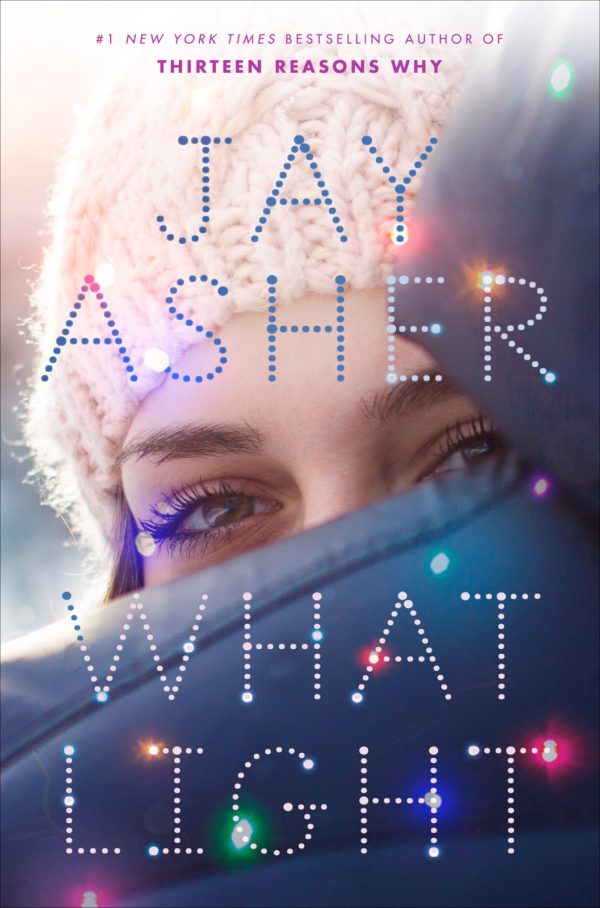
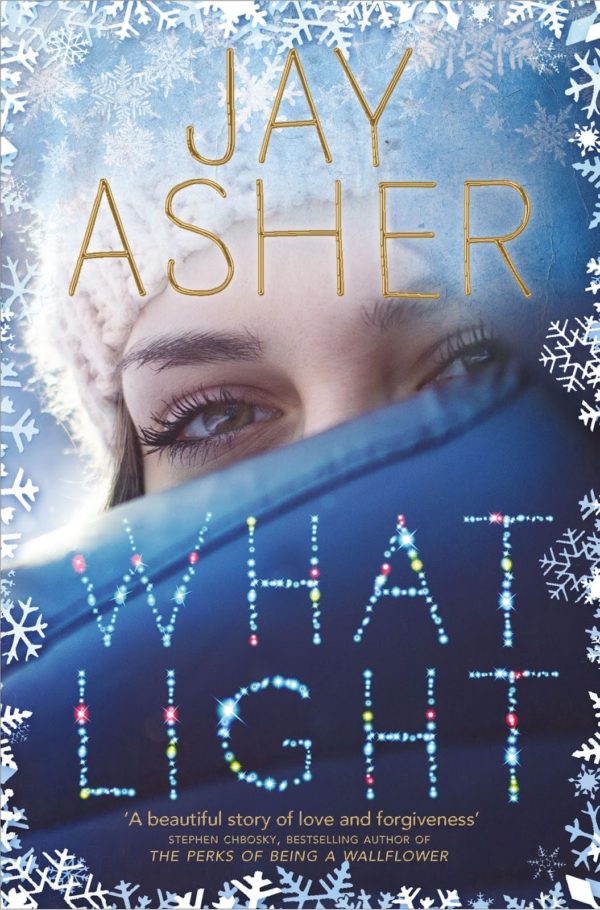
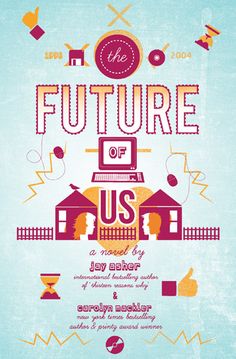
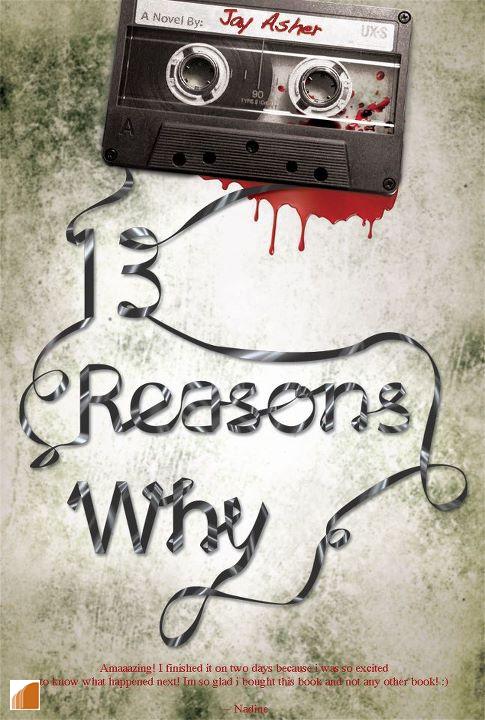
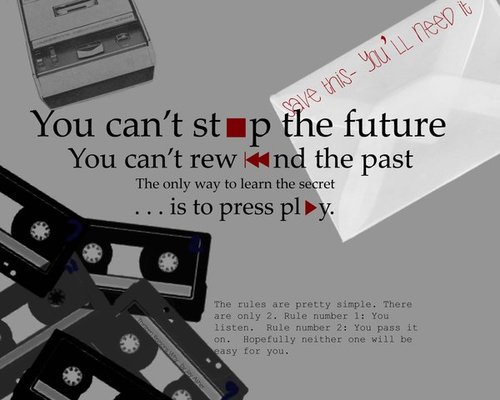
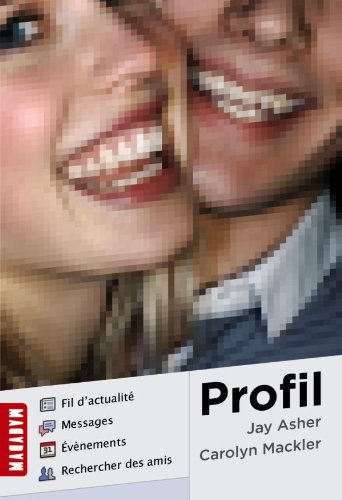
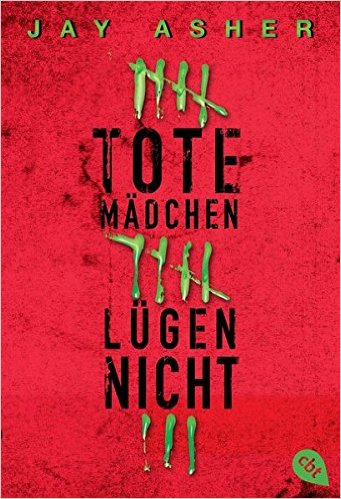
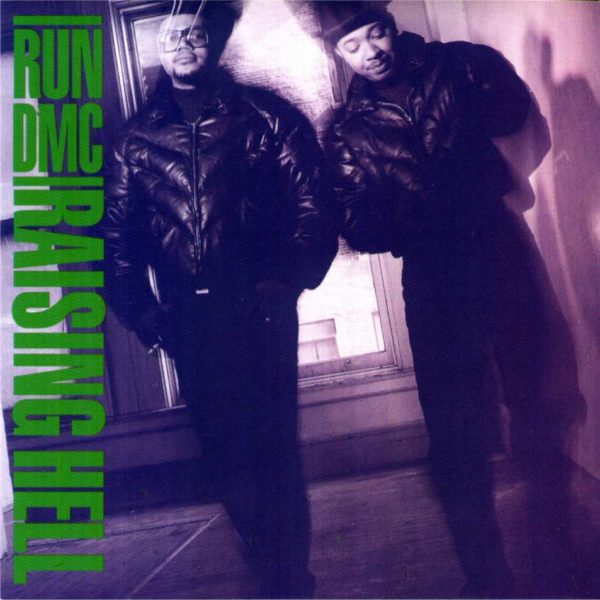
Leave a Reply